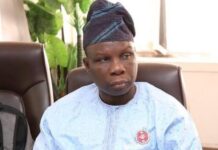Lee Kuan Yew’s Singapore continues to be celebrated globally as an economic miracle of the 21st century. “From Third World to First: The Singapore Story: 1965-2000”, the book authored by the sage, has become a Bible of sorts for individuals and nations aspiring for transformational leadership.
Being one of the four high-growth economies collectively dubbed the Asian Tigers, Singapore curates an advanced market with the second-highest GDP per capita in the world. But lost in that excitement is another equally consequential miracle, namely; the harmonious coexistence of a cultural mosaic. Halima Yacob, the 8th President since September 14, 2017, is not only a woman but also belongs in the minority Indian ethnic sub-group. It means that Singapore is also a world leader in diversity and inclusion.
Modern Singapore came to be as a trading post of the British Empire, founded in 1819 by Sir Stamford Raffles. It was briefly occupied by Japan during the Second World War but quickly returned to the British in 1945 following Japan’s surrender. Singapore finally gained her independence in 1959, just one year before Nigeria, another of Britain’s former colony.
A tropical island in Southeast Asia, off the southern tip of the Malay Peninsula, Singapore is a multicultural, pluralistic nation-state with a population of 5.4 million. It is populated by a garden variety of racial groups but the three major ones include Chinese, Malay, and Indian with Chinese constituting about 75% of the population. Though cultural heritage is an important part of a Singaporean’s identity, the nation has often been described as a congregation of different cultures coexisting in one congenial space. Organizations that promote inclusion are richly rewarded by the state. But it has not always been that way.
During the brief period following independence when Singapore briefly merged with Malaysia as one nation, there were series of communal race-based clashes between the Malays and Chinese. The worst happened on July 1964, during which 23 people died and 454 others suffered severe injuries. After that incident, the country said, never again. They became intentional about implementing measures that tend to promote racial harmony. Since then and on July 21st of every year, Singaporeans celebrate Racial Harmony Day to mark her success as a racially diverse but harmonious nation. Activities are often organized by schools and grassroots organizations, including religious groups during this period.
In Singapore, different ethnic groups pledged to come together as one united people, without giving up their cultural heritage or beliefs. Common national identity, however, takes precedence over ethnic or religious identities. She has become a truly secular state that was named the most religiously diverse nation by the Pew Research Center in 2014. Culture in Singapore is largely defined by Justice, Peace, Social and Religious harmony.
Despite lacking natural resources, the nation is a highly developed country ranking 9th in the United Nation’s Human Development Index and is the only country in Asia with a AAA sovereign rating from all major rating agencies. Singapore is one of the world leaders in the manufacturing sector which contributes about 20%-25% of the country’s annual GDP. She pioneers efforts in chemicals manufacturing, biomedical sciences research as well as transport and logistic engineering.
When in 1914, Lord Lugard pieced together a large and diverse group of ethnic nationalities under the southern and northern protectorates and called it Nigeria, no one claimed that the British just hatched out an El Dorado where milk and honey will forever overflow. Yes, there is bound to be internal struggles brought upon by differences in language, religion, culture and what have you. But if you think those are the real issues, then I have got a big Niger bridge to sell you. Let’s for once acknowledge that Nigeria is not burning to the ground because a Kanuri man cannot understand the Ijaw man or that it’s heresy for Bishop Mathew Hassan Kukah to sit across the table with the Sultan of Sokoto. No. Our problems are deeply rooted in human greed dressed up in all manner of costumes.
Not that Nigeria’s First and Second Republics produced anything close to a perfect union but those inglorious years of military interregnum planted the seeds of discord and distorted Nigeria’s already fragile federal structure. A constitution-backed Federal Republic is being run like a Unitary Republic and General Abdulsalami Abubakar bequeathed to us a military-driven, hurriedly concocted document called the 1999 constitution.
Many of Nigeria’s current challenges are attributable to the imbalances and inadequacies of the constitution which makes the federal government too dominant, while the states and local governments have become mere appendages, dependent almost entirely on Abuja. The exclusive list is too wide and places the executive in a position to abuse the office and disregard the powers of the other organs.
A surgical overhaul of the existing political arrangement that would reintroduce true fiscal federalism will go a long way to eliminate the current structural imbalance. It will foster a healthy competition between states and geo-political zones where the best will come ahead. No group will feel robbed or cheated of their resources again.
Diversity is often blamed as the main cause of Nigeria’s hydra-headed problem and nothing could be further from the truth. Baring the challenges, the differences among our constituent ethnic nationalities could also result in having a large pool of complementary skill sets which when properly harnessed could serve the greater good. Our problem is simply pervasive injustice fueled by tribalism, nepotism religious fanaticism and fertilized by greed. Similar vices have in the past, even torn apart nuclear families whose ties of consanguinity should foster strong bonds. Those creations of selfish minds are equal opportunity destroyers of peace and progress in any given society.
Dr Agbo, a Public Affairs analyst is the coordinator of African Center for Transparency and Convener of Save Nigeria Project. Email: Eagleosmund@yahoo.com
Follow the Neptune Prime channel on WhatsApp:
Do you have breaking news, interview request, opinion, suggestion, or want your event covered? Email us at neptuneprime2233@gmail.com





